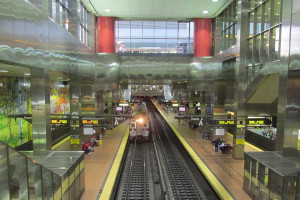Excerpt: Somehow, He Escaped
Many years later, on a visit home, I took a long, relaxing walk along the river. I was 47, yet had never once strolled any great distance along the Schuylkill. My feelings towards the city of my birth would always be mixed. One part of me loved to revisit a municipality whose charms had generally eluded me when I was growing up; but sometimes, particularly when I would hear the chillingly pedestrian Philadelphia accent, I felt as if I had never moved away to New York, as if my adult life had never happened. This return visit was a particularly illuminating experience. Casting my mind back, viewing events through the eyes of a nine-year-old, I remembered the distance between the housing project and Center City Philadelphia as Bunyanesque, a veritable death march. But now, after all those years, I discovered that the total was only about three miles — that it was no more than a 60-minute hike from the foot of the Art Museum to the project entrance. Kelly Drive, named after Grace’s sculling sibling, was a tree-lined urban paradise for joggers and bicyclists. This was a revelation. When my father had dragged me downtown to sign up for public assistance 37 years earlier, he made a point of marching through a slum, whereas we might have enjoyed ourselves. He preferred to wallow in melancholy urban nostalgia rather than avail himself of Mother Nature’s restorative powers; he would rather sift through the ashes of the past than take delight in the present. The river, the bushes, the flowers, the trees — none of it meant anything to him. The river hadn’t been part of his childhood, so it could never be part of his adulthood.
What accounted for this attitude? He was poor. Libertarians, self-made men and sage pundits believe that money can make any problem disappear — that if one merely puts enough cash into the hands of the poor, they will draw on the prodigious reserves of wisdom and enterprise they’ve been clandestinely stockpiling for so many years and make all the right choices needed to turn their lives around. School vouchers are the most obvious example of such thinking; who, after all, is better positioned to make Solomonic decisions about her child’s education than a 16-year-old mother of three? Adherents to this school of thought have difficulty grasping that poverty is as much a state of mind as an economic condition, a pathology that encourages the poor to make bad decisions. Ravished emotionally, not widely liked, rarely chipper in disposition, the poor early on develop a knack for making bad situations worse. Their folly is thereupon used as an additional indictment of their character. Poverty becomes a self-fulfilling prophecy: It may not be your fault that you were born poor, but somewhere along the way you’ve certainly mastered the art of behaving like a poor person. You are shiftless. You are self-destructive. You are foolish. Now go away.


